
A looked back at my years-long introduction to Ayn Rand and her books that changed my life.
By Joseph Kellard
It all began unceremoniously enough, on a routine summer afternoon when I was about 12. I noticed a book in the grass next to my teenage sister, Maureen, as she sunbathed in our yard. It was a white paperback, a novel that, certainly unbeknownst to me then, would come to dramatically change my life — unfortunately, not for many years.
I picked it up and liked the interesting painting on the cover, with its spotlight-like bars of sunrays that pierced dark clouds onto a city of skyscrapers. The novel’s title, The Fountainhead, in black, bold letters, piqued my curiosity, and I thought it was cool how the author, Ayn Rand, spelled her first name, which I (mistakenly) thought was pronounced “Ann.”
I don’t recall asking my sister anything about the book, perhaps because I had no interest in reading much beyond my next issue of Sports Illustrated. And although that moment was fleeting, it made an impression, bared out in years to come, as I would recall that moment when I periodically came across that author's name and her book throughout my youth.
My second encounter came a few years later, when I switched to reading Muscle & Fitness and Muscle Mag, two magazines that fed my teenage hopes of building a Mr. America-type physique. They featured articles by Mike Mentzer, a top bodybuilder who occasionally quoted passages from a character in The Fountainhead that evoked the virtues of individualism and independent thought. Mentzer used Rand’s words to buttress his unorthodoxed philosophy of high-intensity training, a system that challenged the sport’s conventional views on how to build eye-popping muscles.
Thanks to Mentzer, I got a tantalizing taste of the ideas from that novel my sister once read. Around this time, I too was starting to pick up novels on my own, reading mostly 19th century classics, especially by Dickens and Tolstoy. But for some unknown reason, I was not yet inspired enough to pick up The Fountainhead. Instead, I put it with others on my imaginary “must read” list.
A few more years would pass before I came across the unusual name of its author. I was likely in my late teens or early 20s when I opened 2112, an album by Rush, a progressive rock band, and read this dedication inside: “Lyrics by Neil Peart, with acknowledgement to the genius of Ayn Rand.”
Meanwhile, a college philosophy class had inspired me to read the works of different thinkers and I found I was partial to Nietzsche’s Anti-Christ, as well as Dostoyevsky’s novels, especially Notes from Underground, a book with a protagonist who believes that 2+2 can equal 5.
Still, I was not reaching for Ayn Rand’s novels or non-fiction at bookstores, but my next encounter with her words would prove decisive. On the dusty, overstocked shelves at a used bookstore, I came across a newly published compilation of Playboy interviews, entitled The Playboy Interview: The Best of Three Decades 1962-1992. It featured interviews with everyone from Muhammad Ali to Yassir Arafat to Bob Dylan, as well as that novelist that my sister had read, Mike Mentzer quoted and a lyricist-drummer considered a genius.

By then I was in mid-20s and writing shorts stories with aspirations to become the next Joyce Carol Oates or the young Truman Capote. Philosophically, I was a subjectivist; politically a liberal. I recall that the issues I was grappling with most then were my agnosticism and growing distaste for the teachings of Christianity and Catholicism.
I skimmed through Rand’s interview, first published in 1964, probably glossed over some passages, like her high praise of capitalism and ultra-limited government, and likely bought the book based on other parts that I found provocative, particularly her ideas on religion.
On original sin:
“If man is guilty by nature, he has no choice about it. If he has no choice, the issue does not belong in the field of morality. Morality pertains only to the sphere of man’s free will — only to those actions which are open to his choice. To consider man guilty by nature is a contradiction in terms.”
On the symbol of the Cross:
“[A]ccording to the Christian mythology, [Jesus] died on the cross not for his own sins but for the sins of the nonideal people. In other words, a man of perfect virtue was sacrificed for men who are vicious and who are expected or supposed to accept that sacrifice. If I were a Christian, nothing could make me more indignant than that: the notion of sacrificing the ideal to the nonideal, or virtue to vice.”
On faith:
“Faith as such is extremely detrimental to human life: it is the negation of reason. … [A]s philosophies, some religions have very valuable moral points. They may have a good influence or proper principles to inculcate, but in a very contradictory context and, on a very – how should I say it – dangerous or malevolent base: on the grounds of faith.”
Let’s just say I went home and eagerly read the entire interview. It served as my entrée to Rand's ideas on a variety of sublime subjects – on reason and faith, selfishness and self-sacrifice, the proper foundation for love, the importance of sex in man’s life, the proper role of government, the individual versus the collective – and it had me savoring much more. And what better book of hers for me to start with than The Fountainhead? Actually, when I finally sat down to read it, I think I picked up the copy that my sister read more than a decade prior.
Two distinct impressions endure from my initial reading of The Fountainhead. First, I underlined, in agreement with, the words of Ellsworth Toohey, who I would later learn is the novel’s villain. I had faith in his professed ideals about self-sacrifice and what some now call “social justice.” But – and this is a big, life-changing “but” – there was also the novel’s main character and hero, Howard Roark, the individualist, innovative architect whose quotes I remembered from Mentzer’s articles. Roark was, hands down, unlike any character I had come across in any work of literature I had read, from Othello to A Tale of Two Cities to The Brothers Karamazov to East of Eden to In Cold Blood.
This early passage in the novel, as Roark is still being introduced to the reader, struck me: “People turned to look at Howard Roark as he passed. Some remained staring at him with sudden resentment. They could give no reason for it: it was an instinct his presence awakened in most people. Howard Roark saw no one. For him, the streets were empty. He could have walked there naked without concern.”
Howard Roark captivated me. And what I found most fascinating, from the start of the novel to its end, was his supreme confidence and his unconcern for what others thought of him, a characteristic captured best by his clipped, self-assured manner of speaking:
Toohey: “Mr. Roark, we’re alone here. Why don’t you tell me what you think of me? In any words you wish. No one will hear us.”
Roark: “But I don’t think of you.”
To put it simply, Roark was cool. As I read the novel, which made scant mention of his childhood, and certainly after I completed it, there was one question that lingered: How did he get that way?
I absolutely needed to know. And I knew at least this much: the answer was to be found in learning more about the philosophy of the author who created him. After I had put off reading The Fountainhead for many years, I then took all the time I could to read Ayn Rand’s many novels and non-fiction books, to learn and put into action the ideas that shaped Roark’s character.
My quest started with The Virtue of Selfishness, Rand’s provocatively titled non-fiction book that lays out her radical ethics of rational selfishness. After that, I turned to her most important work, Atlas Shrugged, an epic novel with a lengthy speech near the end that broadly summarizes her fundamental philosophy. I still didn't want to admit it then, stuck as I still was to my subjectivist-liberal sensibilites then, but I was hooked.

I soon read all of Ayn Rand’s books, putting off until last Capitalism: The Unknown Ideal, because I didn’t want to believe that that exploitive economic system could be good. But I knew I was discovering a radically different but logical way of viewing the world. On a personal scale, her philosophy was one that, slowly but surely, with some early faltering and many pains along the way, helped me to develop my self-esteem, heighten my happiness and strengthen my pride.
I sometimes ask where I might be today if that painting (by Ayn Rand’s husband, Frank O’Connor) on the 25th anniversary edition of The Fountainhead hadn’t caught my preteen eye on that summer day? I don’t know, and sometimes I’m afraid to entertain such thoughts. But I undoubtedly discovered the philosophy just in the nick of time, just before it probably became too late for me to expect to make any real, fundamental changes to my troubled character and life.
And for that, I will forever be indebted to Ayn Rand, and this commentary is one of my many payments to her good name.

























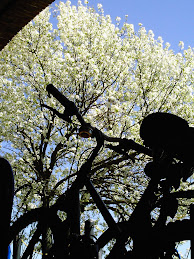



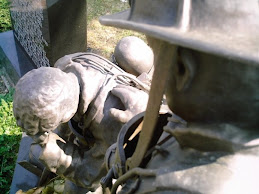
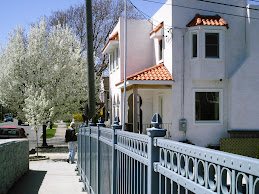
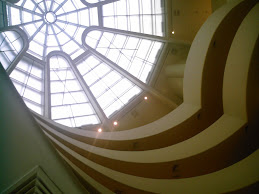+-+June+2009.jpg)


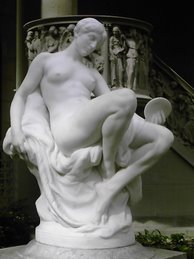





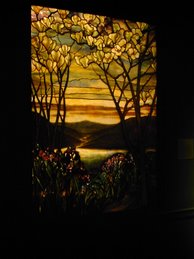


6 comments:
Thank you for your post. I enjoyed reading of your journey.
Thank you, Rosemary. I'm happy to hear you enjoyed it.
Lovely story! I'll share it with others, and maybe I'll even share my own story, too.
Thanks, Jenn. And please do share it with others. I'd also love to hear your story--it's one of the reasons I wrote this piece: one of my favorite things about meeting and talking with Ayn Rand fans is learning how they discovered her books.
Wonderful story, Joseph. It is a fantastic journey. Thank you for sharing it.
You're welcome. Thank you for your comment.
Post a Comment